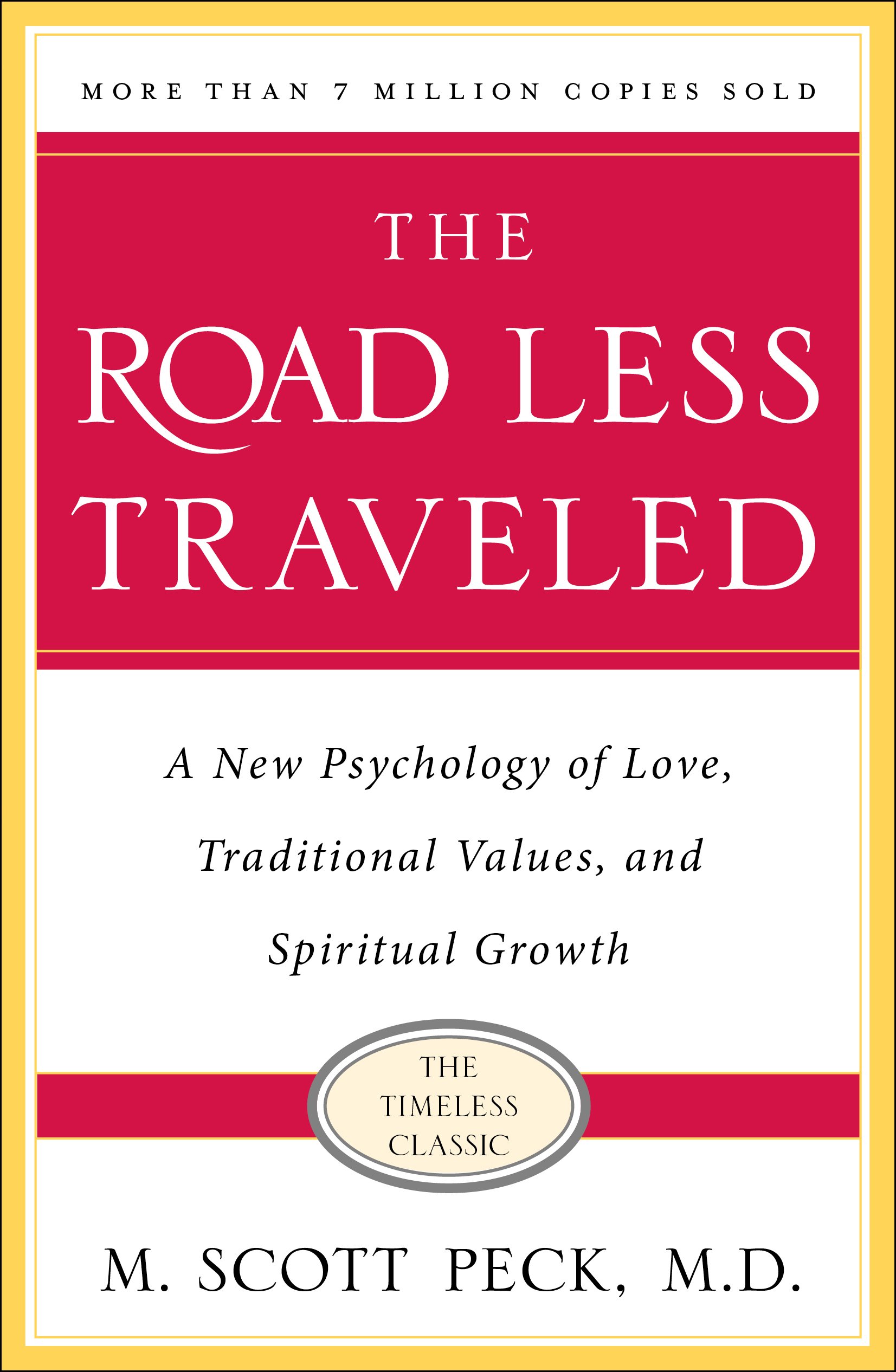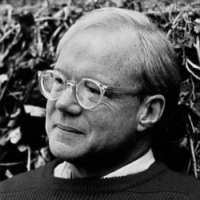The Road Less Traveled Summary
5 min read ⌚

MicroSummary: “The Road Less Traveled” is an ultra-popular 1978 psychological book by M. Scott Peck, aiming to redefine concepts as ubiquitous as love and religion, and striving to demonstrate how understanding discipline and grace is essential to both leading a healthier life and truly grasping the meaning of your existence.
A New Psychology of Love, Traditional Values and Spiritual Growth
Life’s not treating you too kind? Can’t get your head around why seemingly everything and everyone is so unfair to you?
In “The Road Less Traveled,” M. Scott Peck says that you’re asking the wrong question. We look over the right ones in the summary of his ultra-popular book.
Who Should Read “The Road Less Traveled”? And Why?
As we commonsensibly point out in our critical review, a book as famous as “The Road Less Traveled” is an essential read for anyone with even a vague interest in spirituality. It’s also a book students of religion, psychology and human emotions must acquire at least some knowledge about.
But, finally and primarily, it’s a book which may help you become a better person. And even save your life. Just take a look at some of the Amazon’s comments – you’ll know what we mean.
About M. Scott Peck
 M. Scott Peck was all but an ordinary American psychiatrist when the manuscript of “The Road Less Traveled” was turned down by Random House for being a bit “too Christ-y.” Six years later, its Simon & Schuster edition would make publishing history and Peck would become one of the most talked-about psychiatrists in the United States.
M. Scott Peck was all but an ordinary American psychiatrist when the manuscript of “The Road Less Traveled” was turned down by Random House for being a bit “too Christ-y.” Six years later, its Simon & Schuster edition would make publishing history and Peck would become one of the most talked-about psychiatrists in the United States.
He authored many books afterward, dealing with topics such as human evil, love, suffering, spirituality, and even exorcism and possession. “People of the Lie” is the only one which earned at least some of the fame associated with “The Road Less Traveled.”
“The Road Less Traveled Summary”
“The Road Less Traveled” starts pretty memorably. And we’re pretty sure that quoting its first paragraph is a nice way to start our summary as well:
“Life is difficult. This is a great truth, one of the greatest truths. It is a great truth because once we truly see this truth, we transcend it. Once we truly know that life is difficult – once we truly understand and accept it – then life is no longer difficult. Because once it is accepted, the fact that life is difficult no longer matters.”
And the resolution of this so profoundly Buddhistic sentiment forms the basic premise of Peck’s book.
“The Road Less Traveled” is divided into four parts, each of them discussing a different feature of Peck’s philosophical system.
The first part is entirely dedicated to something your parents spent most of your childhood annoyingly imparting on you: discipline.
Guess what? Peck says that they were right on spot in doing so.
Discipline, in Peck’s opinion, is the essential element of your spiritual life and your psychological health. And it consists of four components, each of which deserves a separate attention.
Delaying gratification is possibly the most important aspect of discipline. It means sacrificing your present comfort to find some happiness in the future. Remember that beautiful Bob Dylan’s verse: “People don’t do what they believe in, they just do what’s most convenient, then they repent”? Well, delaying gratification is the exact opposite of this.
And it’s closely linked to the concept of acceptance of responsibility, which means exactly what it says. So, from now one, if you made a mistake – you were the one who made it.
Which leads us to the third aspect of discipline: dedication of truth. People, says Peck, will rather lie to themselves if that helps them adapt. But that’s not the right way and it leads to a schizophrenic society.
Finally, discipline is about balancing as well. It’s what you need to do when facing with a tough problem and irreconcilable factors which might impact your decision. It’s not a science: it’s an art. But, you should invest some time learning it.
In the second part of “The Road Less Traveled,” Peck deals with some of the most common misconceptions about love. Believing it to be much more universal and profound than your Hollywood-based version of it probably is, Peck argues that love is what you do when you extend your nemesis, the ego, towards someone else.
Almost obviously, from discussing love, Peck moves on to discussing religion in the third part of his book. Once again, he tackles one misconception after another to prove that religion is something more than merely an organized system of thought.
Which brings him to the last part of his book and his discussion about something as ineffable as grace. In order to bring this indescribable concept closer to his readers, Peck selects few real-life stories, which, in his opinion, show that miracles happen all around us.
And, obviously, he believes that these miracles are prove that you are not alone in this universe.
Key Lessons from “The Road Less Traveled”
1. Your Everyday Menu: Discipline, a Four-Layered Sandwich
2. Love Is an Action, Not a Feeling
3. Laziness Is the Original and the Ultimate Sin
Your Everyday Menu: Discipline, a Four-Layered Sandwich
You’d think that a healthy life begins with a healthy diet; but, it seems smart people often think of it in terms of some other things. In Peck’s opinion, the essential element of a healthy life is discipline.
And, in his opinion, discipline means delaying gratification, accepting responsibility, being honest and truthful, and, finally, balancing. It’s not easy. But, nothing that matters in life is easy.
Love Is an Action, Not a Feeling
Peck believes that love is both the most important and the most misunderstood aspect of living. The way he sees it, love has nothing to do with romance and feelings. And it is way more complex than that passive “waiting-to-be-loved” version everyone loves to write about.
Love is active, and crammed with responsibilities and risks. And if you’re not willing to take them – you won’t find it.
Laziness Is the Original and the Ultimate Sin
You probably think that pride or the strive for knowledge is the original sin. However, Peck thinks otherwise. In a nutshell, that Eve and Adam were lazy to take the time and energy to debate whether eating the fruit is good or bad.
Don’t be like them. A good life requires a lot of dedication. And active participation.
Like this summary? We’d like to invite you to download our free 12 min app, for more amazing summaries and audiobooks.
“The Road Less Traveled” Quotes
Until you value yourself, you won't value your time. Until you value your time, you will not do anything with it. Share on X Problems do not go away. They must be worked through or else they remain, forever a barrier to the growth and development of the spirit. Share on X Human beings are poor examiners, subject to superstition, bias, prejudice, and a profound tendency to see what they want to see rather than what is really there. Share on X You cannot truly listen to anyone and do anything else at the same time. Share on X I define love thus: The will to extend one's self for the purpose of nurturing one's own or another's spiritual growth. Share on XOur Critical Review
Very few books have had a more profound impact on our thinking ways than “The Road Less Traveled.” In fact, many general readers consider it the best psychology book ever written. Thought-provoking and beautifully written, the book really lives up to the hype.
And the fact that it’s sold in almost 10 million copies, surviving for more than a decade on the “New York Times” bestseller list, is merely further evidence that it’s a must read.
In other words, it may not be as life-changing book for you as it has been for many other people. But, then again, their opinions count just as much as yours.
Emir is the Head of Marketing at 12min. In his spare time, he loves to meditate and play soccer.







